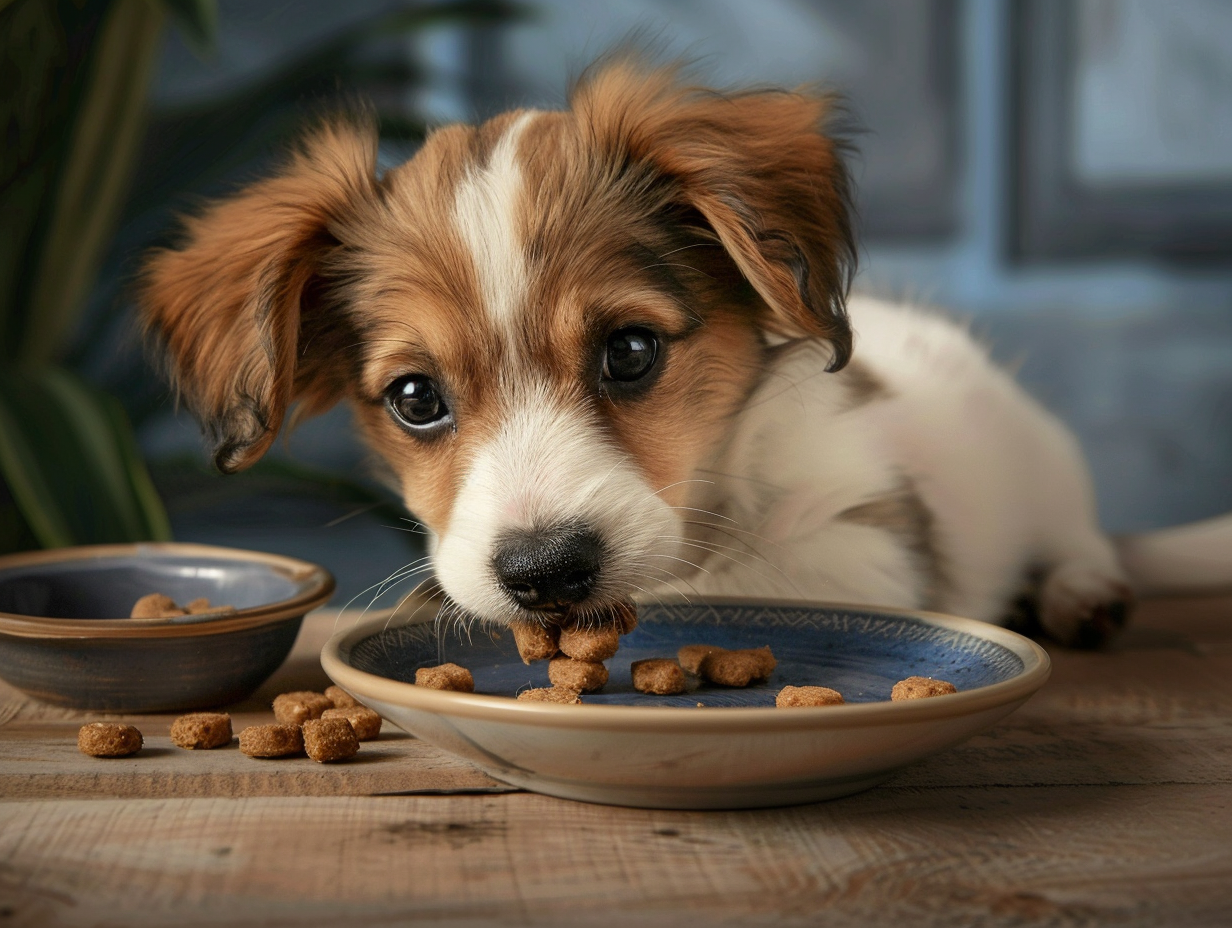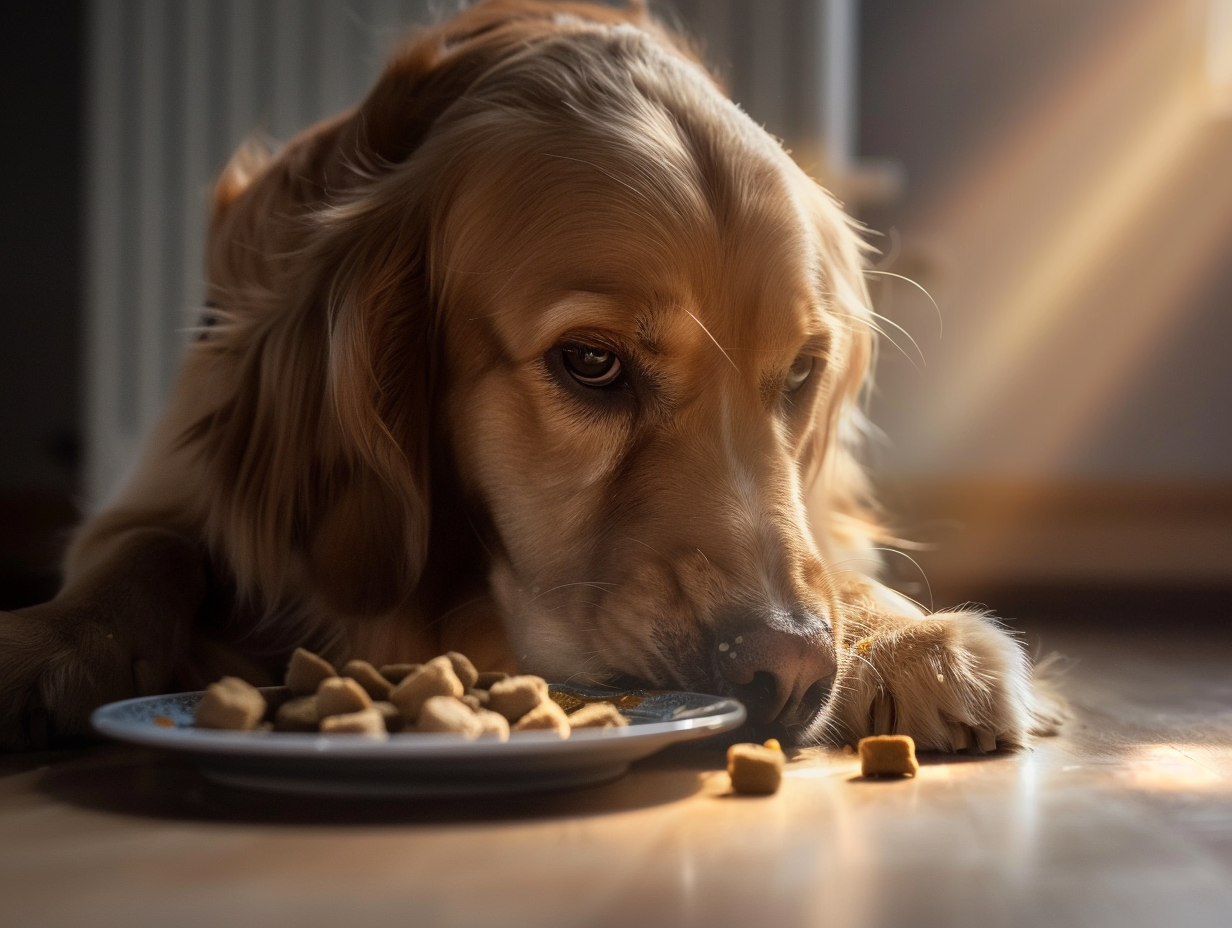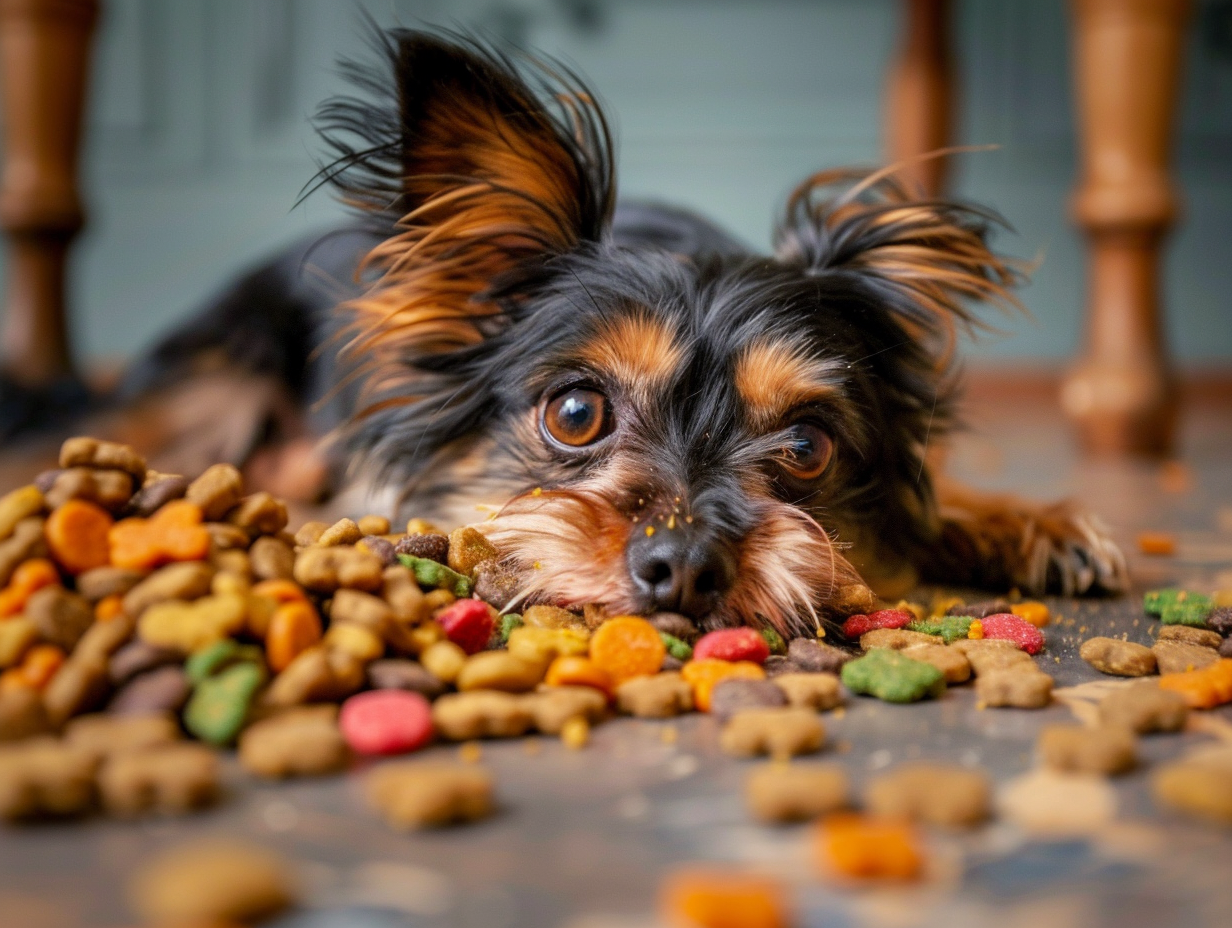Dogs cannot communicate through words, so we try to decode their actions to better understand their needs. That’s why pet owners are so observant about everything their dogs do—from how they tilt their heads to how they approach their meals.
One such curious behavior is how a dog will sometimes bypass the chewing stage and opt for a speed-eating frenzy. This is intriguing but also worrying because what if this rapid ingestion leads to digestive issues or, worse, a choking hazard?
Before you start panicking, let's understand why our dogs behave this way and the best way to address the situation.
Why Don't Dogs Chew Their Food?
Dogs skip the chewing stage for various reasons. In most cases, it’s instinctual—dogs are descendants of wolves and have certain instinctual behaviors related to food consumption. In the wild, dogs typically eat food fast before their potential competitors or littermates took it, which caused them to skip the chewing stage and directly gulp down the food.
While our domesticated dogs no longer need to compete for their food or protect it from others, they still retain certain primal instincts. This makes it natural and normal for them to gulp their meals in seconds.
Even though this can be worrying, dogs' teeth are fortunately designed to handle tearing and slicing food efficiently. They have sharp, pointy teeth instead of flat molar surfaces meant for chewing. This system facilitates gulping and allows them to swiftly consume large chunks of food.

When Is Not Chewing a Problem for Dogs?
Here are some cases in which a dog's not chewing the food can be a cause of concern:
1. New Behavior
If your dog has recently started gulping down the food instead of chewing, it could indicate an underlying health problem. Any sudden change in a dog’s behavior, especially regarding eating habits, can be a sign of concern.
A new habit of not chewing can be linked to dental problems because your dog might feel pain while chewing or has some digestive discomfort. In such cases, you should watch your dog for other symptoms, such as bad breath, inflamed gums, excessive drooling, etc. If you notice anything out of the ordinary, you should contact your veterinarian.
2. New Food
Have you recently made any changes to your dog’s diet? If they used to chew their food and now they don’t, it’s possible your dog doesn’t like the taste of the food, and it’s showing its distaste by gulping. It might be hungry, but the lack of interest in chewing could show its dissatisfaction with the diet.
If this is the case, then you should try to revert to your dog’s old diet and observe if they start chewing again.
3. Age of Your Dog
The age and weight of your dog can be a concern when it comes to their non-chewing behavior. For example, if you have a small puppy that refuses to chew, it could pose a risk of choking and impact their dental health.
This is also true for older dogs, as not chewing their food can make it challenging to digest larger pieces and strain their digestive system excessively.
4. Weight Issues
Rapid eating without chewing can lead to overeating, which can cause obesity in dogs. If your dog constantly eats his food fast without chewing and struggles with weight management, it's important to address their eating behavior.
Furthermore, if your dog is already overweight, it might rush through meals, aggravating its problem. This situation must be adequately handled by addressing the non-chewing behavior and implementing proper feeding strategies.

7 Tips for Encouraging Chewing Behavior in Dogs
Here are seven tips to help you encourage chewing behavior in your dog and prevent any health complications:
1. Create a calm environment
Your dog might feel competitive about finishing the food if you have multiple pets. You can avoid this problem by feeding them separately or by creating a safe feeding environment.
2. Buy slow-feeding bowls
These bowls slow your dog's eating speed by incorporating small obstacles. This makes it harder for a dog to grab large mouthfuls of food and prevent rapid eating.
3. Wet the Kibble
Some dogs fed kibble tend to simply swallow the bites without chewing. In such cases, you can add water to the kibble, transforming its texture and making it less prone to being eaten whole.
When adding warm water to Nextrition cold-pressed dog food, wait a few minutes, then press and mix with a fork to stir into a paste.
4. Change their diet
Suppose you believe that the cause of gulping down food is dissatisfaction with the taste. In that case, you can switch your diet and incorporate more flavorful alternatives to cater to their taste preferences.
5. Use chew toys
You can introduce age-appropriate chew toys into your dog’s routine to help them train and encourage chewing.
6. Teach New Commands
Your dog might need more training to chew its food. You can start with basic commands like "chew" or "slow" during mealtime or consult a professional dog trainer for guidance.
7. Consult a veterinarian
You should schedule regular check-ups with a veterinarian to ensure your dog is healthy and their chewing habits aren’t related to any underlying issue.

Summing Up: Why Don't Dogs Chew Their Food?
If you’re unsure how to handle this situation, consider consulting a veterinarian about your dog’s chewing habits.
FAQs
Let’s answer some frequently asked questions about why dogs don’t chew their food:
1. Is it normal for my dog to not chew their food?
It can be considered normal for a dog not to chew their food because it’s an instinctual behavior. In the wild, dogs’ ancestors used to eat their food fast before their potential competitors or littermates took it.
The only reason to consider this as abnormal behavior is if it's a sudden change in their eating habits or if it’s accompanied by other signs that indicate an underlying health problem.
2. When is not chewing food a problem for dogs?
The habit of not chewing the food can be problematic if it has started recently. It could indicate an underlying health issue, dental problem, or discomfort. You should regularly monitor your dog’s behavior and contact a veterinarian if you notice anything unusual.
3. How do I get my dog to chew his food?
You can encourage your dog to chew its food by using slow-feeding bowls or training it to follow basic commands like "chew" or "slow." You can also try wetting the kibble and feeding it separately in a calm environment.





